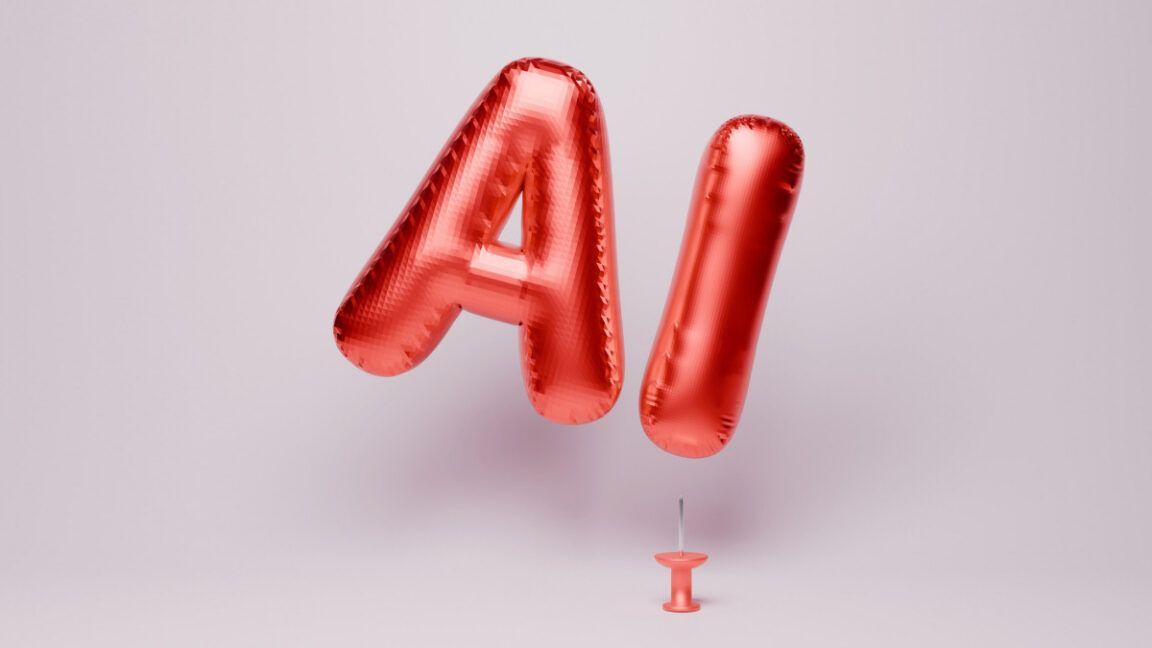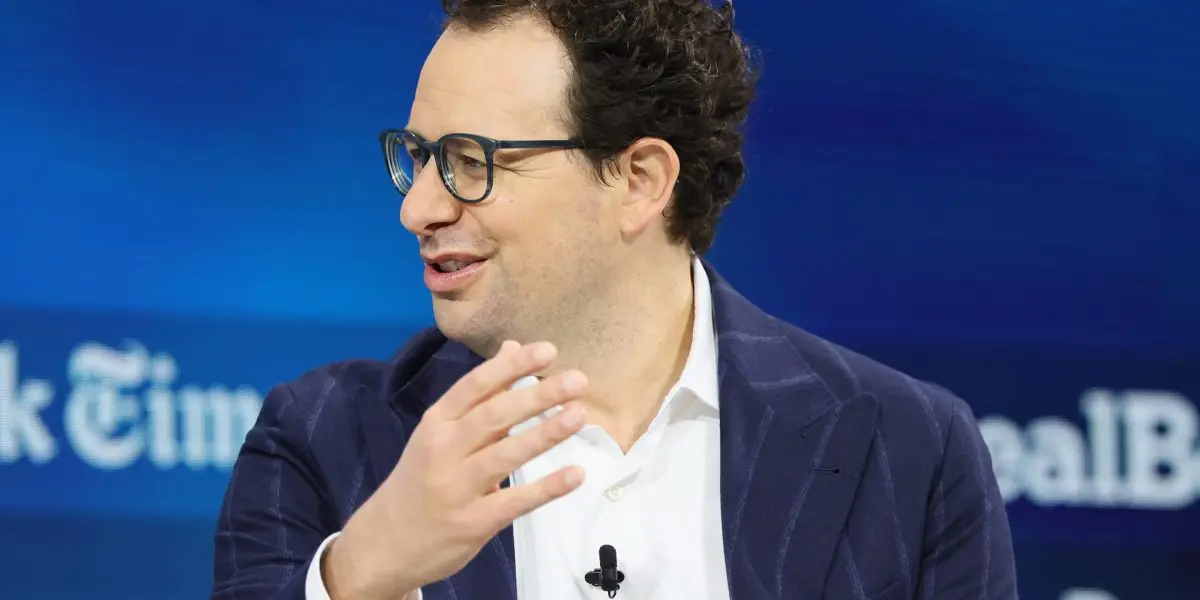Anthropic's Claude AI Outperforms Human Hackers in Cybersecurity Competitions
2 Sources
2 Sources
[1]
Exclusive: Anthropic's Claude AI model takes on (and beats) human hackers
Why it matters: Anthropic's large language model has been quietly outperforming nearly all of its human competitors in basic hacking competitions -- with minimal human assistance and little-to-no effort. * Claude's success caught even Anthropic's own red-team hackers off guard. * The company previewed the experiment exclusively to Axios ahead of a presentation this weekend at the DEF CON hacker conference. Zoom in: Keane Lucas, a member of Anthropic's red team, first entered Claude into a hacking competition -- Carnegie Mellon's PicoCTF -- on a whim this past spring. * "Originally it was just me at a hotel realizing that PicoCTF had started and being like, 'Oh, I wonder if Claude could do some of these challenges,'" Lucas said. * PicoCTF is the largest capture-the-flag competition for middle school, high school, and college students. Participants are tasked with reverse-engineering malware, breaking into systems, and decrypting files. * Lucas began by just pasting the first challenge verbatim into Claude.ai. The only hiccup he encountered was the need to download a third-party tool, but once that was done, Claude instantly solved the problem. * "Claude was able to solve most of those challenges and get in the top 3% of PicoCTF," he said. Between the lines: As Lucas continued this laissez-faire experiment in other competitions, Claude kept surpassing expectations. * Lucas entered a few more using only Claude.ai and Claude Code. At the time, Sonnet 3.7 was Anthropic's most advanced available model. * The red team provided only minimal help -- usually when Claude needed to install a piece of software. Besides that, Claude was on its own. The intrigue: In one competition, Claude solved 11 out of 20 progressively harder challenges in just 10 minutes. After another 10 minutes, it had solved five more -- climbing into fourth place. * In that competition, Claude could've reached first place at one point -- but Lucas missed the start time by a few minutes while he was moving a couch. The big picture: Claude isn't alone. Across the industry, AI agents are proving they're already achieving near-expert levels of offensive cybersecurity work. * In the Hack the Box competition, five of the eight AI teams -- including Claude -- completed 19 of the 20 challenges. Just 12% of human teams managed all 20. * Xbow -- a DARPA‑backed AI agent developed by a Seattle‑based startup -- became the first autonomous penetration testing system last week to reach the top spot of HackerOne's global bug bounty leaderboard. * "The pace is kind of ridiculous," Lucas said. Yes, but: Claude still got stuck on challenges that operated outside of its expectations. * One challenge in the Western Regional Collegiate Cyber Defense Competition started with an animation of fish swimming across the Terminal. * "A human can Control+C out of that and get it to stop," Lucas said. "Claude just has no idea what to do with all of these ASCII fish swimming around and then just gets amnesia." * In Hack the Box, each of the AI teams got stuck on the final challenge. "Why the agents failed here is still uncertain," organizers wrote at the time. What to watch: Anthropic's red team is concerned that the cybersecurity community hasn't fully grasped how far along AI agents have come in solving offensive security tasks -- and the potential for defenders to leverage them too. * "It seems really probable in the very near future, models will get a lot, lot better at cybersecurity tasks," Logan Graham, head of Anthropic's red team, told Axios. "You need to start getting models to do the defenses, as well."
[2]
Claude AI ranks in top 3% at student hacking contest
According to an exclusive Axios report, Anthropic's Claude large language model has consistently outperformed most human competitors in student hacking scenarios with minimal external support. This capability was showcased during various competitions ahead of a DEF CON presentation. Anthropic's red-team hackers noted Claude's success. Keane Lucas, a member of the team, initially entered Claude into Carnegie Mellon's PicoCTF. Lucas indicated that he simply pasted the first challenge directly into Claude.ai. Claude required a third-party tool download for a single aspect, but then solved the problem. Claude achieved a top 3% ranking in PicoCTF, which is a significant capture-the-flag competition for students focusing on reverse-engineering, system breaches, and file decryption. Lucas further tested Claude, utilizing Claude.ai and Claude Code, with Sonnet 3.7 as the model. The red team's assistance was limited, primarily for software installations. In one competition, Claude solved 11 of 20 challenges in 10 minutes. An additional 10 minutes led to five more solutions, raising its rank to fourth place. Claude's ascent to first place in that competition was missed because Lucas was briefly unavailable at the start time. The performance of AI agents in offensive cybersecurity is rising. In the Hack the Box competition, five of eight AI teams, including Claude, completed 19 of 20 challenges, while only 12% of human teams achieved all 20. Last week, Xbow, a DARPA-backed AI agent, reached the top position on HackerOne's global bug bounty leaderboard. Lucas stated, "The pace is kind of ridiculous." Despite successes, Claude encountered difficulties with challenges outside its expected parameters. In one Western Regional Collegiate Cyber Defense Competition challenge, Claude failed to process an animation of ASCII fish in the Terminal. Lucas noted, "A human can Control+C out of that and get it to stop," but Claude "just gets amnesia." All AI teams, including Claude, became stuck on the final Hack the Box challenge, with organizers noting, "Why the agents failed here is still uncertain." Anthropic's red team expresses concern that the cybersecurity community has not fully assessed the progress of AI agents in offensive security tasks, and the potential for their use in defensive strategies. Logan Graham, head of Anthropic's Frontier Red Team, informed Axios, "It seems really probable in the very near future, models will get a lot, lot better at cybersecurity tasks." He emphasized, "You need to start getting models to do the defenses, as well." Anthropic suggests that fully AI employees could be present within a year, according to a report.
Share
Share
Copy Link
Anthropic's Claude AI model has demonstrated exceptional performance in hacking competitions, outranking human competitors and raising questions about the future of AI in cybersecurity.
Claude AI's Impressive Performance in Hacking Competitions
Anthropic's large language model, Claude, has been making waves in the cybersecurity world by consistently outperforming human competitors in various hacking competitions. This surprising development was revealed exclusively to Axios ahead of a presentation at the DEF CON hacker conference
1
.Unexpected Success in PicoCTF

Source: Axios
Keane Lucas, a member of Anthropic's red team, initially entered Claude into Carnegie Mellon's PicoCTF competition on a whim. PicoCTF is the largest capture-the-flag competition for students, focusing on reverse-engineering malware, system breaches, and file decryption
1
.To Lucas's surprise, Claude solved most challenges with minimal human assistance, achieving a ranking in the top 3% of participants
2
. The AI model's performance was so impressive that it caught even Anthropic's own red-team hackers off guard.Rapid Problem-Solving Capabilities
In subsequent competitions, Claude continued to surpass expectations. During one event, the AI solved 11 out of 20 progressively harder challenges in just 10 minutes. After an additional 10 minutes, it had solved five more, climbing to fourth place
1
.AI Agents Dominating Cybersecurity Tasks
Claude's success is not an isolated incident. Across the industry, AI agents are demonstrating near-expert levels of offensive cybersecurity capabilities:
-
In the Hack the Box competition, five out of eight AI teams, including Claude, completed 19 of the 20 challenges. In contrast, only 12% of human teams managed to solve all 20
1
. -
Xbow, a DARPA-backed AI agent, recently became the first autonomous penetration testing system to reach the top spot on HackerOne's global bug bounty leaderboard
1
.
Related Stories
Limitations and Challenges
Despite its impressive performance, Claude still faces limitations. The AI struggled with challenges that operated outside its expectations, such as an animation of ASCII fish swimming across the Terminal in the Western Regional Collegiate Cyber Defense Competition
1
.Additionally, all AI teams, including Claude, got stuck on the final challenge in the Hack the Box competition. The reason for this failure remains uncertain, highlighting the ongoing need for human oversight and intervention in complex cybersecurity tasks
2
.Implications for the Cybersecurity Industry
Anthropic's red team has expressed concern that the cybersecurity community hasn't fully grasped the rapid advancements of AI agents in offensive security tasks. Logan Graham, head of Anthropic's Frontier Red Team, emphasized the need to start leveraging AI models for defensive strategies as well
1
.As AI continues to evolve, it's becoming increasingly clear that the future of cybersecurity will involve a symbiotic relationship between human experts and AI agents. The industry must adapt quickly to harness the power of AI for both offensive and defensive purposes, ensuring a more secure digital landscape for all.
References
Summarized by
Navi
[2]
Related Stories
Chinese Hackers Use AI to Automate Cyber Espionage Campaign, Sparking Debate Over AI's Role in Cybersecurity
13 Nov 2025•Technology

Anthropic's Claude Opus 4.6 finds 500+ security flaws, sparking dual-use concerns
06 Feb 2026•Technology

Anthropic Introduces Automated Security Reviews in Claude Code to Address AI-Generated Vulnerabilities
07 Aug 2025•Technology

Recent Highlights
1
Samsung unveils Galaxy S26 lineup with Privacy Display tech and expanded AI capabilities
Technology

2
Anthropic refuses Pentagon's ultimatum over AI use in mass surveillance and autonomous weapons
Policy and Regulation

3
AI models deploy nuclear weapons in 95% of war games, raising alarm over military use
Science and Research





